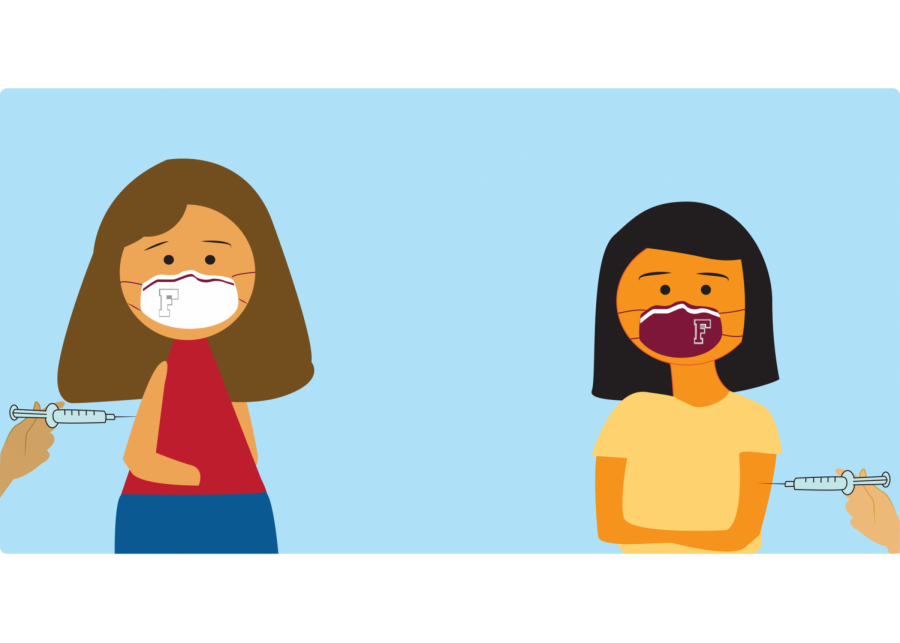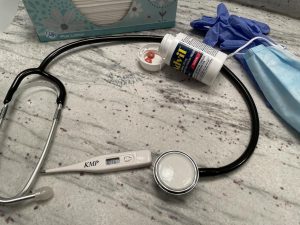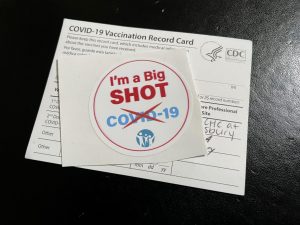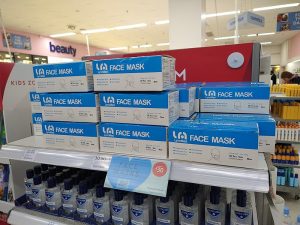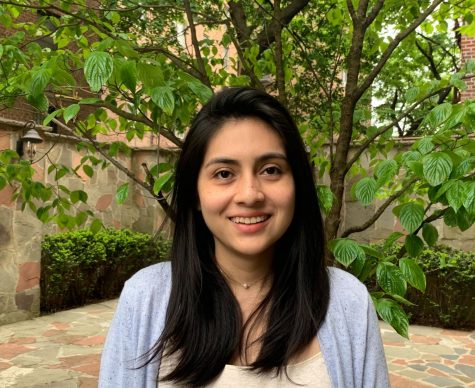Why Vaccinated People Are Not Exempt From Mask Mandates
Though vaccinated individuals are safe from the virus, they can still spread it to others
February 25, 2021
As the United States is ramping up its efforts to increase vaccinations, many people have started to raise questions about whether a person needs to wear a mask after they have received the vaccine. Wearing a mask has become the new normal to try to decrease the spread of the virus, and we are now all accustomed to not being able to read other people’s faces or see their smiles. However, despite our desires to return to normal, we must continue to wear a mask even after receiving the vaccine.
An mRNA Vaccine
The Pfizer and Moderna COVID-19 vaccines are made using a harmless piece of the virus’s spike protein that is found at the structural surface of the virus itself. Proteins are central players in cellular processes and are the prime targets of pathogens and viruses that can cause illnesses and severe or fatal diseases. Viral proteins’ complex characterization is an essential component for the development of antiviral vaccines.
Conventional live vaccines are created when researchers grow the virus in mammalian cells in labs over the course of months or even years.
However, this mRNA vaccine only needs a small quantity of the actual virus, which is used for gene sequencing to produce antigens that initiate an immune response in the body. These antigens prompt T-cell and antibody responses to that foreign toxin, building immunity and memory.
While these new COVID-19 vaccines have been proven to prevent illness in the vaccinated individual, they do not entirely prevent the vaccinated individual from spreading the virus to others.
Possibility of Silent Spreaders
“Vaccinated people who have a high viral load but don’t have symptoms would actually be, in some ways, even worse spreaders because they may be under a false sense of security.” Dr. Yvonne Maldonado, American Academy of Pediatrics
Like many other respiratory infections, the coronavirus enters through the nose, where the replicating process starts. When the virus enters a person who has already been vaccinated, their immune system starts to produce antibodies in enough quantity to keep the person from getting sick. However, there isn’t much evidence on how fast or where the antibody pool is being mobilized in a vaccinated person because the virus can still disperse when a vaccinated person sneezes or breathes out into the air.
In an interview with The New York Times, Dr. Yvonne Maldonado, who represents the American Academy of Pediatrics at meetings of the Federal Advisory Committee on Immunization Practices, noted the danger of vaccinated people still being able to spread the virus.
“Vaccinated people who have a high viral load but don’t have symptoms would actually be, in some ways, even worse spreaders because they may be under a false sense of security,” Maldonado said.
For example, a 33-year-old man in Hong Kong was one of the first people to be reinfected with COVID-19. He did not present symptoms, but he was still able to infect others, as he contained enough of the virus to do so. This illustrates the need to still wear masks and adhere to social distancing guidelines.
“In order to provide herd immunity, a potent vaccine is needed to induce immunity that prevents both reinfection and disease,” said Dr. Akiko Iwasaki, an immunologist at Yale University, in an interview for The New York Times.
Why Wearing Masks Is Crucial
Vaccinated individuals have protected themselves from becoming seriously ill from the virus if they contract it. However, they can still be contagious to others and threaten transmission rates. The Centers for Disease Control and Prevention and Dr. Anthony Fauci, the president’s chief medical adviser, urge everyone to continue to wear masks since the number of cases and deaths are still increasing at present.
People with compromised immune systems and those who cannot be vaccinated still need to be protected even if most individuals are vaccinated. The 94-95% effectiveness rate of the Pfizer and Moderna vaccines is not the case for people with heart disease and cancer, which is why transmission to them can be very rapid. Wearing a mask prevents this spread since there may be asymptomatic vaccinated spreaders who can circulate the virus without knowing. There are a limited number of vaccines, so U.S. experts predict that herd immunity may not be reached until the fall or winter of 2022.

